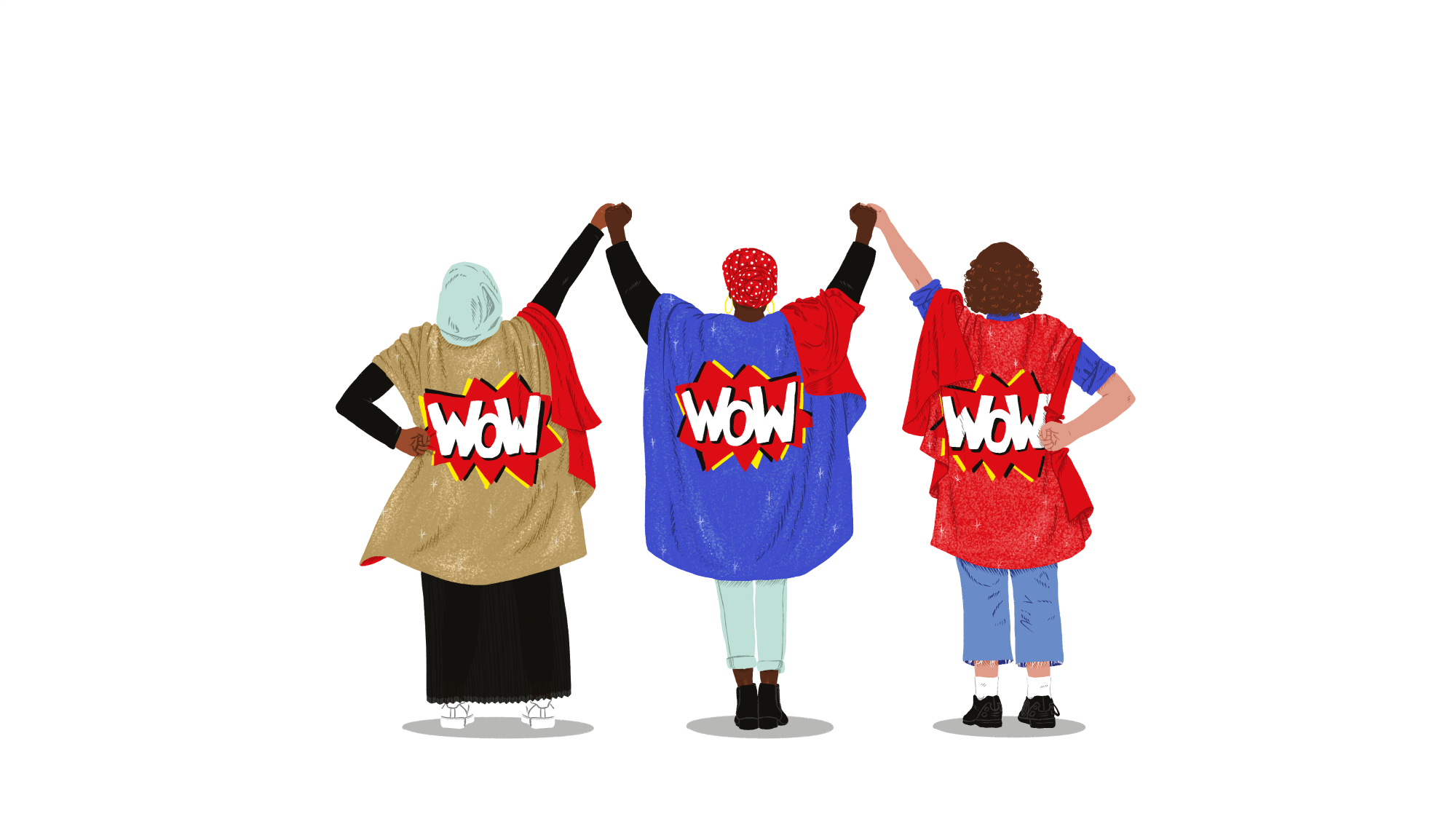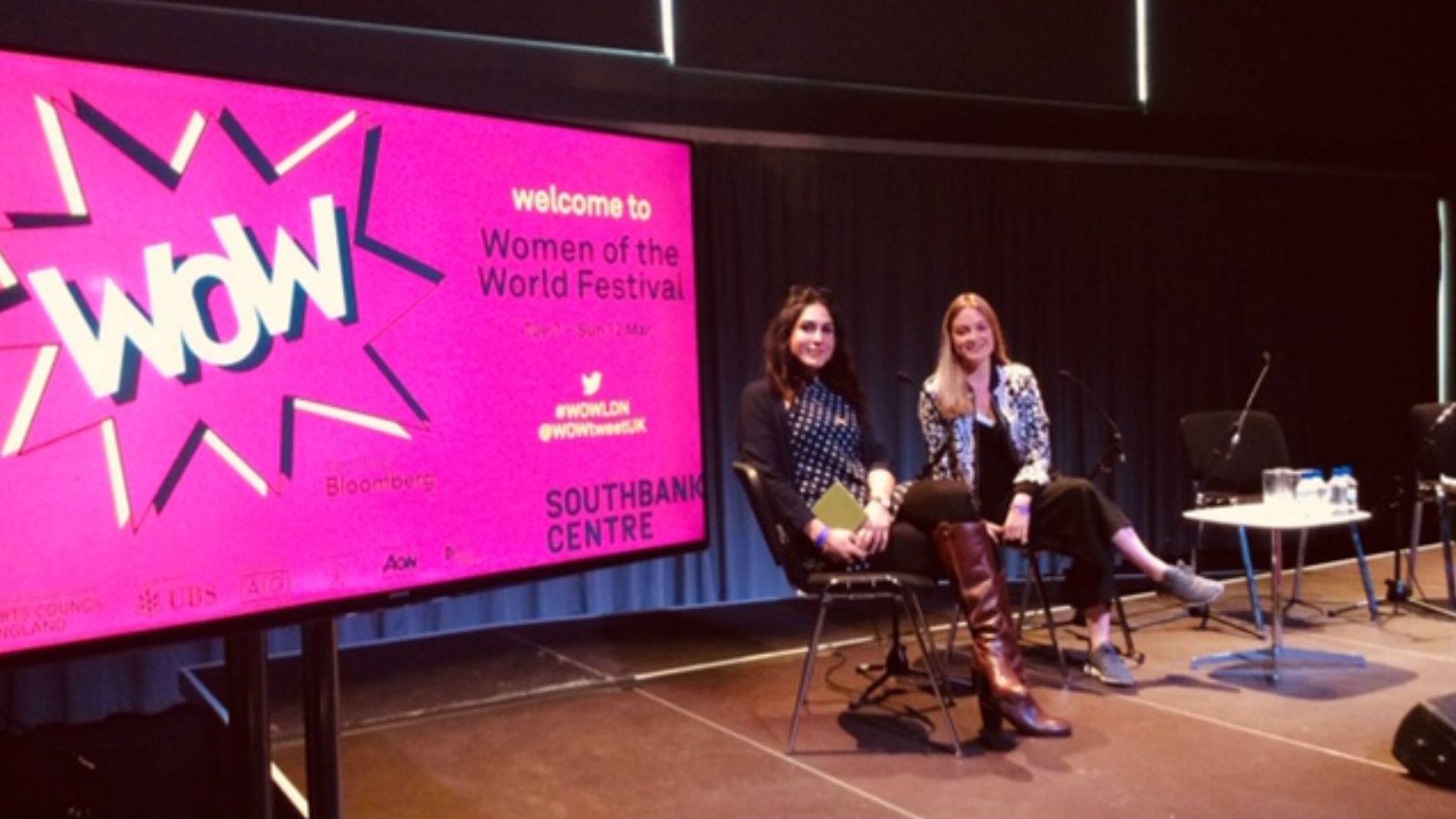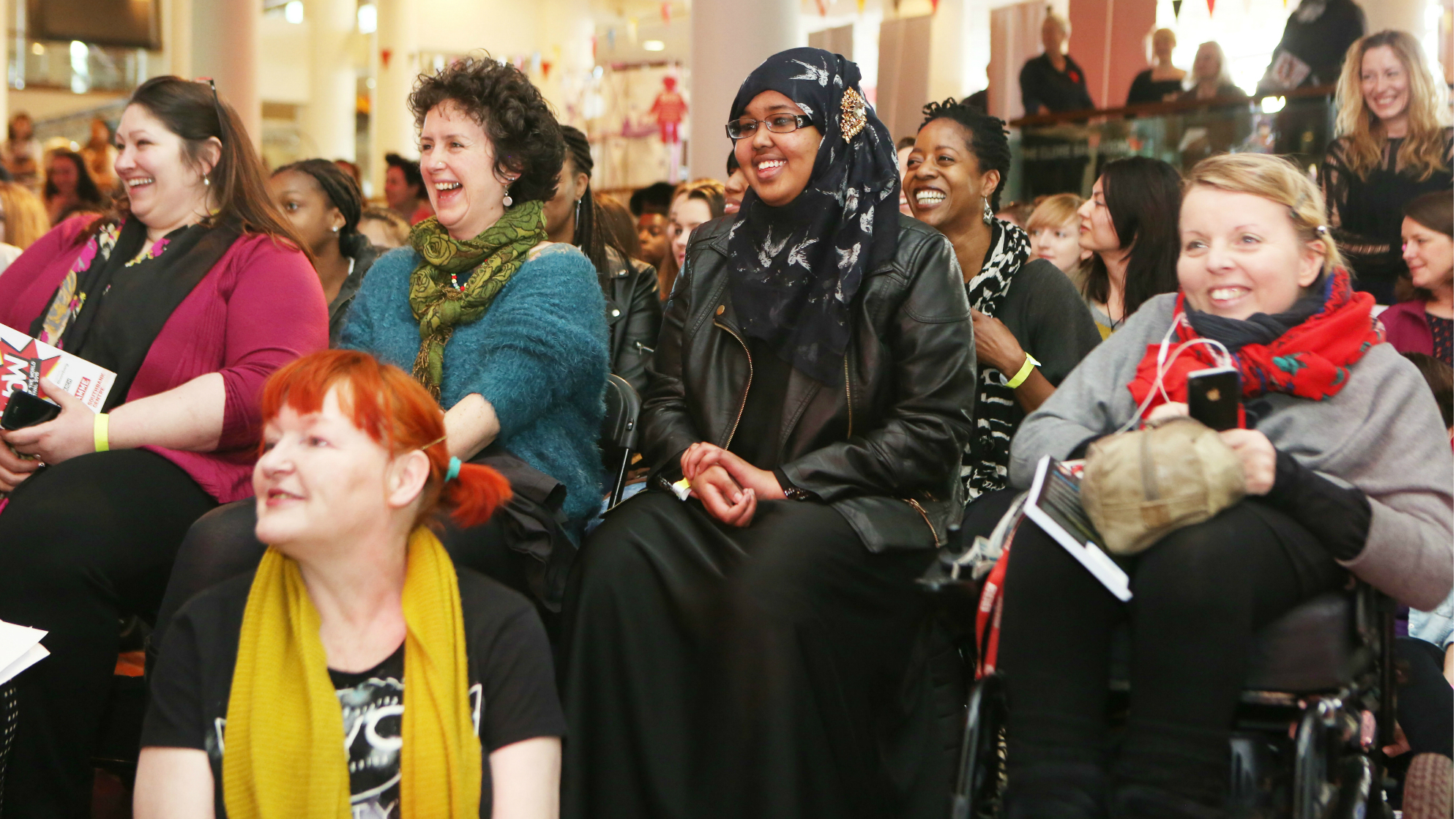How the Women of the World festival changed my life
As London’s WOW celebrates its tenth anniversary, writer Marisa Bate explains why a building full of women determined to make a difference transformed her into the feminist advocate she is today

Celebrity news, beauty, fashion advice, and fascinating features, delivered straight to your inbox!
You are now subscribed
Your newsletter sign-up was successful
As London’s WOW celebrates its tenth anniversary, writer Marisa Bate explains why a building full of women determined to make a difference transformed her into the feminist advocate she is today
This year, the Women of the World festival or WOW as it is more commonly known, turns ten. The Southbank Centre’s annual weekend of events, talks and performances in tribute to being a woman, and the broad and complex contours of everything that can encompass, has become one of the greatest celebrations of feminism this country has. In recent years, the festival has gone global, with WOWs all across the world, including Iceland and Egypt, as well as launching BAM, Being a Man festival, in 2014.
WOW arrived on International Women’s day 2010, riding the crest of re-energised wave of feminism. The following year, Caitlin Moran would publish How to be a Woman, the year after that Laura Bates would start Everyday Sexism. In 2014, Chimamanda Ngozi Adichie published We Should All Be Feminists, which was followed by Beyonce performing at the VMAs in front of a giant LED sign spelling out ‘feminist’. Often referred to the fourth wave, it was if WOW and its founder and Southbank’s former creative director, Jude Kelly, had felt the rumble of the water rising before it broke, offering a space to come together.

Women coming together has long been the backbone of feminists movements. In the late 1800s, women who became known as the Langham Place group met at the offices of the English Woman’s Journal to talk about employment rights and personhood - a movement that foreshadowed the suffragettes. By the 1970s, conscious raising groups were radical spaces for women to meet and realise that they weren’t alone as they felt when it came to issues such as abortion, domestic violence, sexuality and the dreams for a different life they secretly harboured.
And for me, WOW was that first women-led space which helped awaken my own feminism, even though I’d grown up with a tough and politically angry single mother who had laid the groundwork. I could see the injustices she faced - from judging mums at the school gates to sexist men in her office. I watched how people were surprised by her highly-demanding job and her ability to raise two kids on her own. But I couldn’t quite put a label on it.
Yet when I arrived at WOW, it was as if a blurry image had come into focus. That itch of injustice that had always irritated me, sometimes furiously as I couldn’t quite understand or articulate why, all of a sudden made sense. I understood that my filter on the world - the reason I fought with my male flatmates at university over discussing what female MPs wear; the reason my MA thesis examined how male artists were threatened by the arrival of the modern-era woman; the reason I, initially, had wrestled in the uni magazine about the merits of women only literary prizes - was that I was a feminist. WOW presented me with an identity that had long been there, just not named.

Year after year I’d arrive at WOW with the same friend. We’d buy coffee, moving from talk to talk. We’d hear from journalists risking their lives as they tried to expose corrupt politicians; we’d hear broadcasters we’d admire discuss the sexism rife in the media; we’d hear transwomen talk about the abuse they faced. We listen to women talk hilariously and openly about sex. Comedians made us laugh at the absurdity of sexism. Legends like Angela Davis would take the headline slot. Kimberle Williams Crenshaw, the American lawyer who coined the phrase intersectionality in the 1980s, moved the room to a standing ovation as she implored us to #sayhername, painting a vivid picture of police brutality against black women in the US. At one event, I was actually sobbing as a woman told her story of abuse. That evening, in the bar, I shared a glass of wine with that woman and thanked her for her bravery.
Celebrity news, beauty, fashion advice, and fascinating features, delivered straight to your inbox!
WOW helped me join the dots of how inequality works, showing me facets of other women’s lives I needed to learn more of to understand the struggle was far bigger than just my own. Yet simultaneously, it encouraged me to turn inwards. What kind of world did I want? Who did I want to be in that world? The answer was obvious: I wanted to be like the women I was seeing; brave, determined, generous, angry. Those women made me want to participate, not just sit on the sidelines, admiring others.
And then I was part of WOW. After writing about women and drinking, I joined a panel to talk about the ways which alcohol impacts women’s lives. A woman put up her hand and talked of the agony of not being able to forgive her alcoholic mother and the room fell silent. In this room of women (and a few male allies) we had come together and could share our anxiety and truths in the safest of spaces. Just for a moment, I had become part of the fabric of WOW.

And this weekend I will be there again, with a coffee and my friend. We’ll seek out the names we love and be inspired by the names we don’t yet know. We’ll scribble notes and buy books and then afterwards we’ll debrief over wine, weaving the stories of other women with our own. Ten years on, I go to WOW knowing much more about my feminism - knowing how to articulate that itch of injustice that tormented me. I understand structural causes, economics and politics much better now. I have read widely on the struggles of women and over the course of that decade made a career writing about them.
But every time I arrive at the Southbank Centre on a WOW weekend, I’m hit with that same initial wonder standing beside the River Thames while on its banks inside the centre is abuzz with women trying to understand themselves and each other better. The magic of WOW appears, as it always does, through a kaleidoscope of women’s lives and stories, playing out in front of us, and making us think what could be possible. The burn of injustice still stings, but WOW never fails to offer hope. Because what can be more hopeful than a room full of women, determined to change the world?
*For tickets and information on Southbank Centre Women Of the World Festival 2020, visit: southbankcentre.co.uk/whats-on/festivals-series/women-of-the-world
The leading destination for fashion, beauty, shopping and finger-on-the-pulse views on the latest issues. Marie Claire's travel content helps you delight in discovering new destinations around the globe, offering a unique – and sometimes unchartered – travel experience. From new hotel openings to the destinations tipped to take over our travel calendars, this iconic name has it covered.